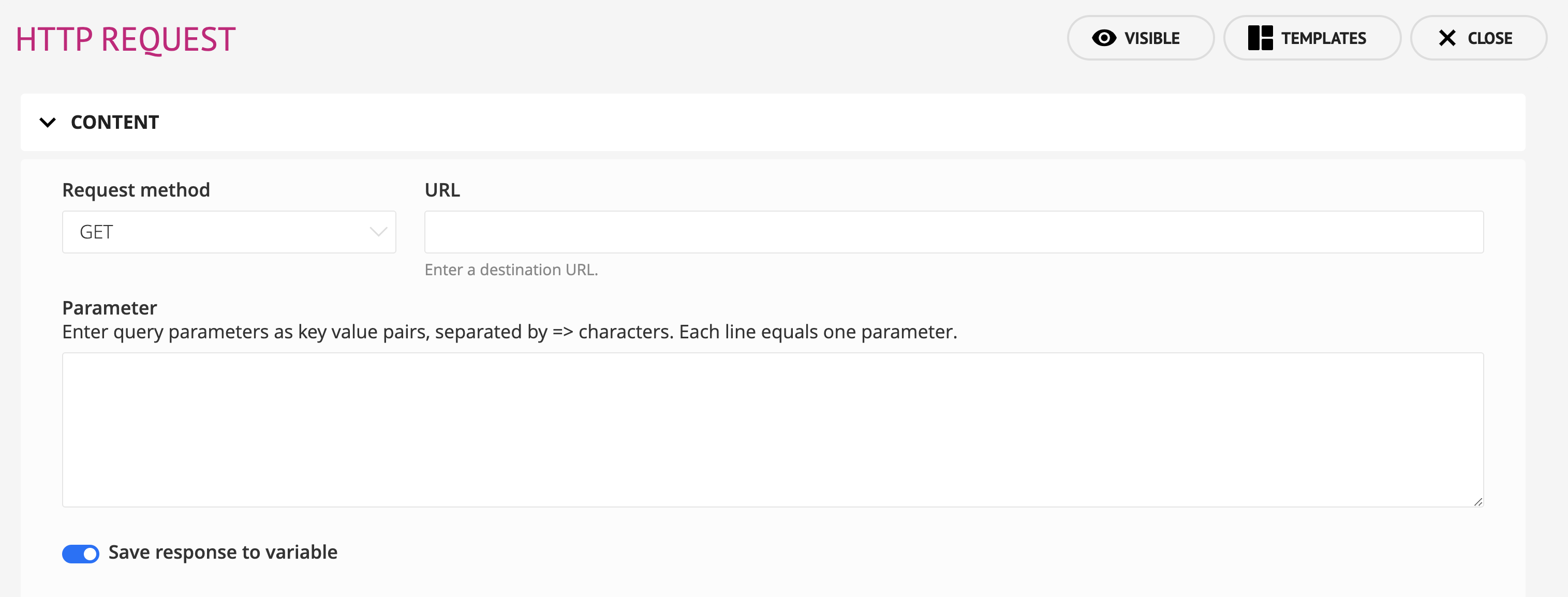HTTP Request
The module “HTTP Request” allows sending HTTP requests to external recipients. With this module, you can specifically send GET requests for data retrieval, POST requests to send information, PUT requests for resource updates, and DELETE requests to remove content to external targets. It is a valuable extension for developers and system administrators who need to seamlessly interact with external systems and enables efficient integration of applications and services into your overall solution.

Setup
Request Method:
Choose the “Request Method” to determine how the HTTP request should be sent. You have the following options:
- GET
- POST
- PUT
- DELETE
You may find more information about this at the following website https://www.restapitutorial.com/lessons/httpmethods.html
URL:
Enter the target address for the HTTP request. This can be a publicly accessible web URL or even a secure address within the same network as the target players. Please note that an address cannot be accessed in the preview if your PC also does not have access to it.
Parameters:
Optionally, you can specify “Parameters” for this HTTP request. You must use the format [NAME] => [VALUE] to ensure correct transmission, and you can enter only one pair of values per line.
Example:
firstname => John
lastname => Doe
Store Response in Variable
You can optionally save the response into the variable storage of your player. This way, you can use the answer from the HTTP service as a placeholder value or as a variable for further processes. If your interface even returns a JSON object as a response, all possible paths are saved in separate variables.
Example:
JSON
{
“glossary”: {
“title”: “example glossary”,
“more”: {
“seeAlso”: [“GML”, “XML”]
}
}
}
FRAMR.Player Variables
glossary.title = “example glossary”
glossary.more.seeAlso.0 = “GML”
glossary.more.seeAlso.1 = “XML”
Note: You can remotely read all currently occupied player variables by making a HTTP call to https://[Player IP Address]/api/variable?list=all and thus find a specific return value.
